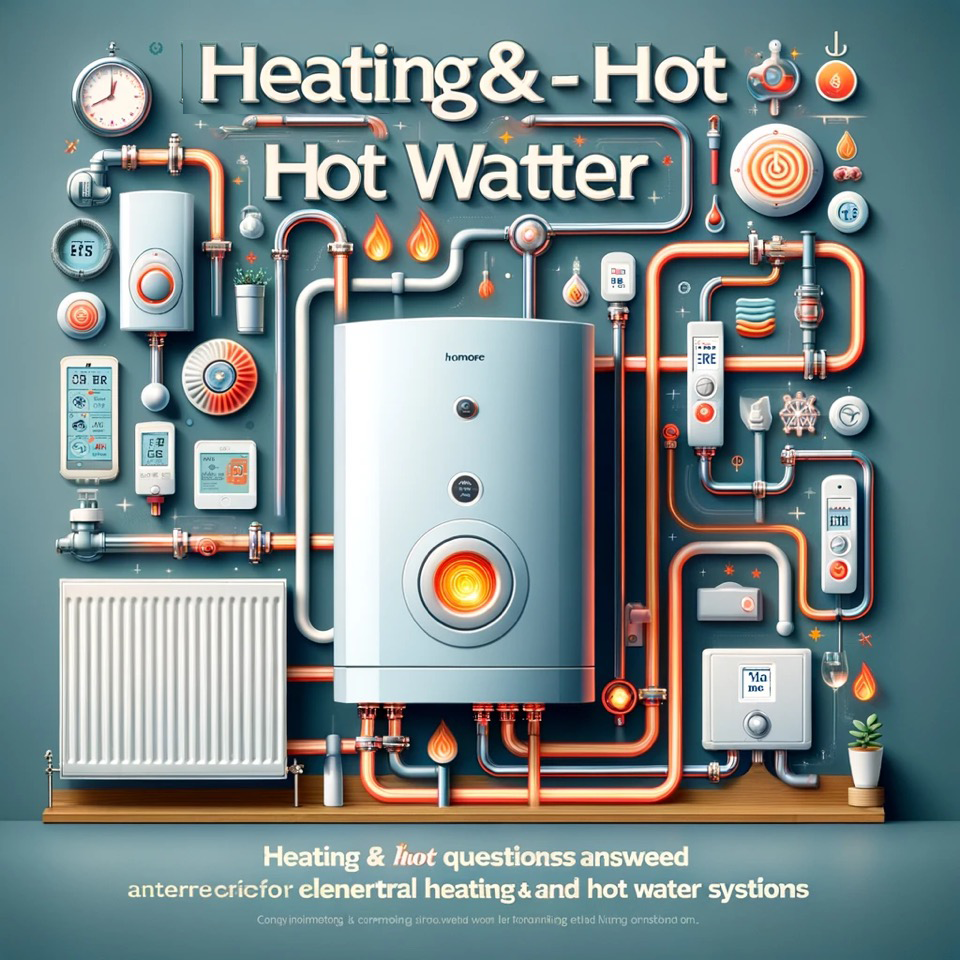Demystifying Central Heating and Hot Water in the UK: Common Questions Answered
The heating FAQ page is new in February 2024 and is expected to have a navigation system to new exciting articles soon.

Central heating and hot water systems are essential for comfort and convenience in UK homes, especially given the country's often chilly climate. However, these systems can sometimes be a source of confusion for homeowners. From the type of boilers to the intricacies of maintenance, numerous questions arise. This article aims to address some of the most common queries related to central heating and hot water systems unique to the UK, providing clarity and guidance.
What Types of Boilers are Used in the UK?
In the UK, the most common types of boilers are combi, system, and conventional (or regular) boilers. Combi boilers are compact and efficient, providing hot water and heating without the need for a separate water tank. System boilers require a cylinder for storing hot water but no water tanks, making them suitable for homes with more space and a higher demand for hot water. Conventional boilers are typically found in older homes, requiring both a cold water tank and a hot water cylinder, suiting properties with low water pressure or multiple bathrooms.
How Often Should My Boiler be Serviced?
To ensure safety and efficiency, it's recommended that boilers in the UK be serviced annually by a qualified engineer. Regular servicing helps prevent boiler breakdowns, prolongs the boiler's lifespan, and ensures it operates as efficiently as possible. It's also a requirement for keeping most boiler warranties valid.
Why is My Radiator Cold at the Bottom?
A radiator that's cold at the bottom but warm at the top is likely suffering from sludge build-up, which prevents hot water from circulating effectively. This issue is common in older systems and can be resolved by flushing the system to remove the sludge, a task best performed by a professional.
Can I Install Underfloor Heating in My Home?
Underfloor heating is increasingly popular in the UK, compatible with various floor types and heating systems. It can be installed as either a primary heating source or supplementary heating. There are two main types: wet (or water) systems, which connect to your central heating, and electric systems. While more expensive to install, underfloor heating offers efficient, even heating and can be more cost-effective in the long run.
What is a Powerflush, and Do I Need One?
A powerflush is a process used to clean out the central heating system, removing sludge, rust, and debris that can accumulate over time. Symptoms indicating your system might benefit from a powerflush include cold spots on radiators, noisy boilers, or radiators taking a long time to heat up. It's a preventative measure that can improve efficiency and extend the life of your heating system.
How Can I Make My Central Heating More Efficient?
Improving the efficiency of your central heating system can reduce energy bills and environmental impact. Consider installing a smart thermostat to better control your heating, upgrading to more efficient radiators, and regularly bleeding your radiators to remove air pockets. Ensuring your home is well-insulated also minimizes heat loss.
Conclusion: Understanding the intricacies of central heating and hot water systems is crucial for UK homeowners looking to optimize their home's comfort and efficiency. By addressing common questions, from boiler maintenance to system upgrades, this guide provides valuable insights into managing your heating needs effectively. Always consult with a professional for major installations or emergency boiler repairs to ensure your system operates safely and efficiently. If you're looking for an emergency heating engineer, do feel free to give EPHG Limited a call.